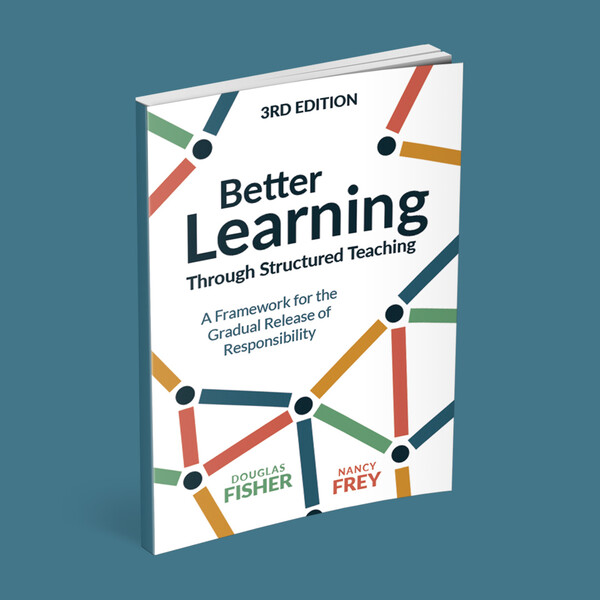In 1817, Thomas Jefferson wrote in support of establishing a state university in Virginia, noting "that knolege is power, that knolege is safety, and that knolege is happiness." Perhaps this quote prompted your disciplinary thinking. You may have approached the passage through the lens of literature and language, seeing Jefferson's use of repetition as an effective writing technique while placing his spelling of knowledge in the context of the early 19th century. You likely viewed the quote using a historical perspective, weighing what Jefferson accomplished as a statesman against what we know about the man as the keeper of enslaved people, whose own family included children he fathered with Sally Hemings, a woman he owned (Gordon-Reed, 2008).
The ability of students to apply disciplinary knowledge to what they read, write, and discuss is crucial for an informed citizenry. In this regard, literacy truly is liberation, as it builds the critical thinking necessary to understand information in context—and recognize misinformation (Parker, 2022). As educators, we've grown to understand that disciplinary literacy is an essential tool for understanding the social, biological, and physical worlds around us.
What Is Disciplinary Literacy?
Disciplinary literacies describe the specialized and unique features of language patterns used in texts (Shanahan & Shanahan, 2012). While elementary students learn the code of written language—sounds, letters, phonics, and vocabulary needed to acquire written content knowledge—an important shift occurs around middle school. Here, students learn that knowledge is communicated in ways that are discipline-specific. Students develop an understanding that the purpose of texts and what constitutes evidence in a text are specific to the overarching principles and philosophies that govern a given discipline (Jetton & Shanahan, 2012).
The purpose of texts and what constitutes evidence in a text are specific to the overarching principles and philosophies that govern a given discipline.
Disciplinary Literacy in Literature
The purpose of literature is to describe the human condition, primarily through fictional characters and situations and expressive language. In this discipline, evidence is largely up for interpretation and is understood to be transactional: The reader's viewpoint influences the experience of the text. Consider times when you have disagreed with a friend about a novel you both read. Beyond the literal meaning of the text, you inferred additional meaning that may or may not align with the author's intentions or your friend's understanding. We started with literature because it is the primary text genre used in secondary English. But literary texts are quite different from those in other disciplines.
Disciplinary Literacy in Science
Science is guided by a belief that replicating reliable findings is crucial. The field is iterative: it integrates new knowledge that may enhance or even replace existing knowledge over time. The iterative nature of science means that new questions arise as others are answered. For example, knowledge about viruses (poliovirus was only the third one discovered, in 1908) gave rise to new questions about the development of vaccines. Science and literature both use inquiry, but in science, data are the primary form of evidence and inquiry must adhere to the principles of scientific thinking.
Disciplinary Literacy in History
The study of historical documents and accounts of a time period are subject to a different kind of scrutiny. Historians use sourcing, contextualization, and corroboration to understand people, events, and places (Wineburg et al., 2012). They seek to find corroborating evidence to support claims: our understanding of Thomas Jefferson comes from documents composed at the time and historical analyses of his political and professional careers. But more contemporary knowledge, like DNA evidence, shapes explanations of the past.
Disciplinary Literacy in Mathematics
A mathematician approaches reading as the process of locating the answer to a problem by following a logical and accurate path toward a solution. The abstract nature of mathematical word problems can be challenging for students, who may focus on the story, but not necessarily the logic needed to arrive at the solution. One helpful method is a three-read protocol that directs students' attention to the technical nature of terms while fostering mathematical inquiry. On the first reading, students focus on locating what is being asked. During the second reading, they attend to the mathematical terms used to understand the necessary computations. On the third read, the group makes a plan to solve the problem and then executes the plan.
Mathematical word problems can be challenging for students, who may focus on the story, but not necessarily the logic needed to arrive at the solution.
In the video that accompanies this column, high school mathematics teacher Jacob Hampson breaks down a problem with a group of students. He uses a think-aloud to apprentice his students into the disciplinary thinking of a mathematician. He also discusses how he considers what the problem asks him to solve for, then talks about derivations of the vocabulary (e.g., polynomials). In particular, notice that he repeatedly returns to how he makes mathematical decisions.
The subject-matter expertise of teachers is essential for students to gain knowledge and the ability to interpret texts accurately—critical thinking at its finest. Exploring issues of power, inequality, and the human condition requires the ability to think critically. Disciplinary literacies are crucial for moving from critique to action, which is at the heart of social justice. In a time when unsupported and harmful misinformation is just a click away, apprenticing students into the ways we closely analyze content gives young people tools to shape their worlds.
Show & Tell May 2023 / Developing Discipline-Specific Literacy
Better Learning Through Structured Teaching
The definitive guide to the gradual release of responsibility—an instructional framework to help students master content and develop new competencies.










